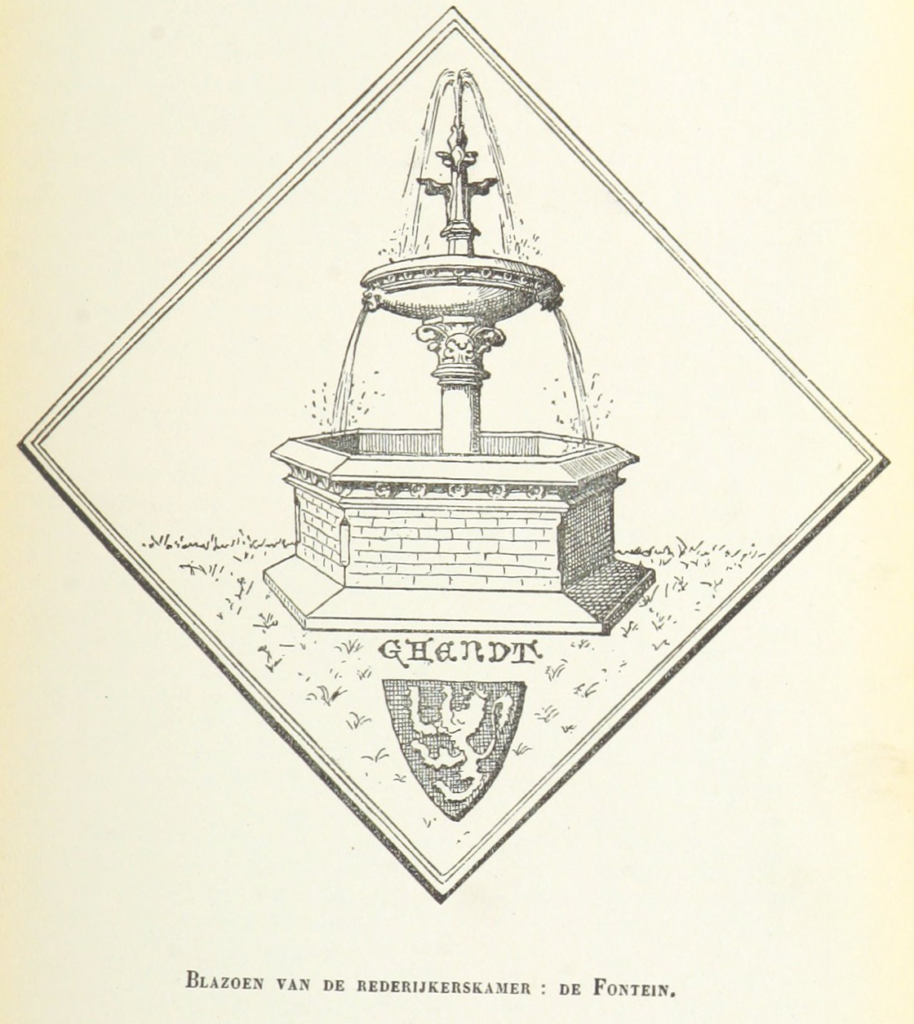March 27th 1627 – our family birthday!
Cornelis Joosten was named ‘the noble quant’. He was given this name at a meeting On March 27th 1627 where he was mediating a dispute between his neighbours. The dispute was between Mateuwes Aertsz. and his son-in-law Willem Aerensz. about the estate of Mateuwes’ deceased wife. The dispute was settled and aprearently the efforts of Cornelis were appreciated as he was called noble quant meaning a noble person or noble comrade.

Detail from the act of march 27th 1627 reading Cornelis Joostens edelen quant (this is not his signature but a line from the text.)
We see a similar use of the word quant in the sentence ‘like a sweet quant’ – meaning ‘like a dear comrade’. The surname Quant also appears in the 17th century in other places, without any demonstrable family connection with the descendants of Cornelis Joosten, but becomes rare over time.
The descendants of Cornelis Joosten remained called (de) Quant, or (de) Kwant. However we lost the ‘noble’ part! When surnames became mandatory from 1811 onwards, it was ‘de Quant’ for our line, as shown by the marriage certificate of Jan de Quant and Adriana Hardijzer, married in Gouda May 11, 1814. Jan points out that his name should be written as ‘De Quant’, unlike others which are only called ‘Quant’. Here the name ‘de Quant’ has taken a permanent shape.
Detail from the marriage certificate, it reads … it actually shoud be ‘De Quant’
Back in time, the origins of the word quant.
The word quant is an originally Dutch word that was in use in Flanders (in present day Belgium) at least as early as the 16th century and possibly earlier and later spread north to present day Netherlands. It is first attested to in Flemish plays , which often used common or vernacular words and quant was such a word (see Schimpighe woorden in de oudere toneelliteratuur – C. de Baere).
I came across the earliest use of the word quant in a play from 1539 by the chamber of rhetoric in Ghent called ‘Spelen van Sinne by den XIX gheconfirmeerden Cameren van Rhetorijcken binnen der stede van Ghendt’: Ghi zut haer quant, den bessen callant, der sonden voedtsele, ghij doet mijn bloet verhitten. Here a quant is a man who wins a lady’s heart.

Another early work also points to Flanders as the source of the word quant. It concerns the satirical plea for freedom called ‘History of Brother Cornelis Adriaensen van Dordrecht, Minrebroeder within the city of Bruges’ from 1576. This book was written by someone who knows Bruges well. In one passage we come across the word quant:
‘So sult ghy lieden weten hoe datier heden al vrouch by doneker
eenen quant de belle van ons Couvent quam clincken :
Cluonfe Broers wel peynsende datter yet dzémfs fchuylen foude quamen
huerlieder feftiender en deden de pootte open .
Den quant bet aenfichte tot die oogen toemet fyn mantel gedeckt hebben de
récié een groot packet brieuen fegghende gheeft dat aen B. Comelis.
Ons Biders seyden coemi binnen vrient en gheuet hem seluen’
Here the quant is the deliverer of a secret letter. Because this is the first known use of the word quant as a person, the origins of using quant in this way seem to lie in Flanders in the early 16th century.
Meaning
As shown above, Quant is used to indicate a man. Sometimes a characteristic is added about his character or behavior, positive or negative. In the book Adoni-Beseck, or lex talionis that is: just punishment of God over the tyrants, by Jacob Fokkens 1632 we read:
Eer dese lose Quant u brenght in smert en duck.
Jck konde mÿn propoost, om dat ick was verbolgen
Nae mijnen zin en wensch ten minsten niet vervolgen
Ichsprong upt mÿnen saep met aller ijl en vlijt
En daer me washy deur den Quant die was ich quijt.
Ich laghby wat bedwelmt ick wassoo wat verßaegen
Ich dachte soude God ons Landt wel weer gaen plaegen
Metbzienden vanden Speck , met Dienaers van spn Hof
Die onder alle man verkonden Sijnen lof?
This text is a bit more difficult to read, but the first line is about a ‘loose quant’, someone who doesn’t live up to his promises, who brings smert (pain or sadness).
In the dictionary ‘The large word book, containing the treasure of Dutch language, with a French explanation’ by Jan Louys d’Arsy 1643, the following is stated under quant:
Quant, un homme de fait, Gallant, Ruftre, m. Quant, Maggher, Compagnon, Confrere, m.
So a quant is a man of action. The word gallant is also often used in descriptions.
The use of the letters ‘qu’ in Dutch sometimes refer to Latin or French origens. However, a dive into the history of the word quant reveals that this is not the case here. If we look at sources from that time, the 16th and 17th centuries, we see that many words were written with ‘qu’ that we nowadays write with ‘kw’. In the dictionary ‘The large word book, containing the treasure of Dutch language, with a French translation’ by Jan Louys d’Arsy (1643), under “Q” there is a whole list of words that we nowadays write with ‘kw’ , such as quaad (angry), quartier (quarter), quack, etc. In texts from the 17th century, quant is also written as kwant but this seems to be of a later date then quant with ‘qu’, which already appears in the 16th century . There was no official spelling at that time and people often wrote phonetically, like they heard it. We can conclude that the use of qu is not an indication of french of latin origens.
In the ‘Nieuwe Woordenboek der Fransche en Nederlandtsche Tale’ from 1686, the French word Compagnon is translated as quant, with two entries:
Compagnon: Gaillard, qui aime à fe divertir . Cheerful guy, nice quant. One that is cheerful. C’est a good companion. He’s a nice quant, or guy.
Petit compagnon . Homme de base condition & qui a peu de pouvoir. A low quant, a bad man. A man of poor and lowly origins and status. Est-ce à a petit compagnon comme vous de parler de la forte. It suits a small quant like you Speak?
Conversely, quant is not mentioned among the French words in this dictionary. So it does not come from French.
Finally, in the book ‘de minnespiegel der deughde’ (mirror of virtues) from 1650, quant is mentioned again in relation to women and love. Here parents are advised in the choice of a virtuous quant (man) for their daughter. See the rhyme below:
I have known others who have also sailed like this,
These parent, learn from me, if you think so,
Never resist Daughter’s desire to do well
A Quant of good policy and healthy members,
A Quant who shows himself to be of science and reason,
A Quant who wins his need in honor and virtue,
A Quant who is virtuous and loves good company;
If this one comes to stay with your Child or Daughter,
And that he might desire it out of true love,
And that she likes it, and she offers him love,
Ey! Parents, do not prevent such Marriage,
Of course, being a Quant myself, I can only wholeheartedly agree!
Author: Wouter de Quant

